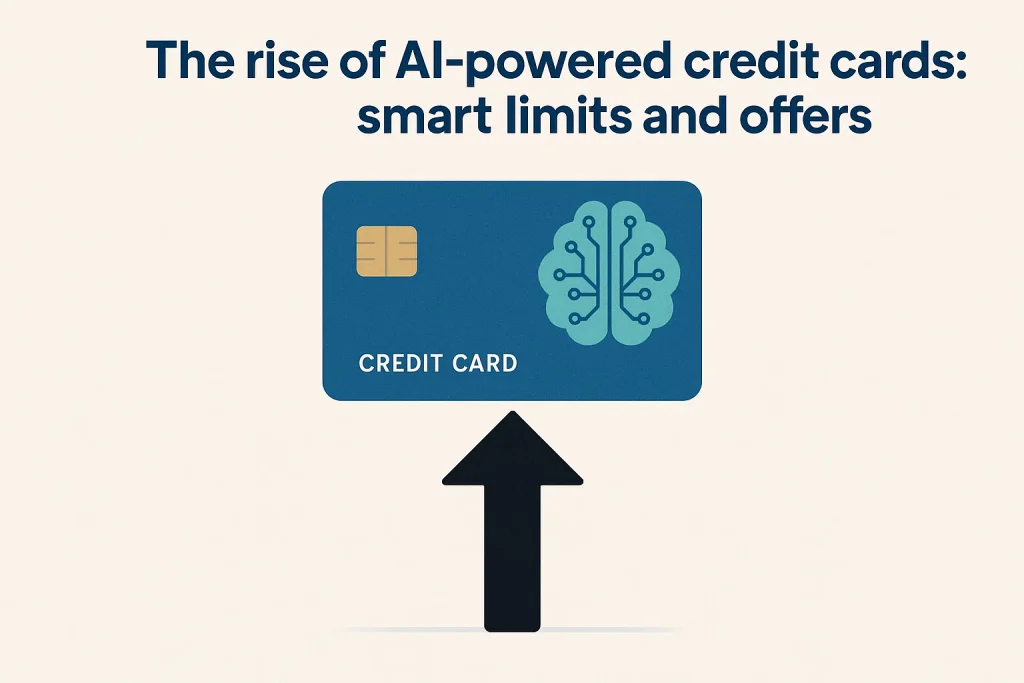The rapid integration of technology into our daily lives has transformed many traditional industries, with the financial sector being particularly influenced by these changes. Among such advancements, the development of AI-powered credit cards is gaining momentum, offering users highly personalized solutions like smart limits and custom offers.
Credit card companies tapping into artificial intelligence have the potential to revolutionize how we manage our finances by providing intelligent, data-driven services that both simplify and enhance the consumer experience. As AI continues to evolve, the scope of its influence on credit cards grows, bringing both opportunities and challenges. Consumers stand to benefit from more tailored financial products, but must also consider the implications of greater data usage.
The integration of AI into financial services

Artificial intelligence is reshaping the financial landscape, with credit cards being merely one aspect of this broad transformation. AI algorithms are now capable of analyzing vast amounts of data to offer insights and tailored recommendations. For credit card users, this means customized credit limits, spending advice, and bespoke rewards programs based on individual spending habits.
By leveraging real-time data, these intelligent cards adapt to consumers’ financial behaviors, optimizing offers in a way that traditional credit cards cannot match. Financial institutions that harness AI can gain a competitive edge by offering these next-generation products, capturing the interest of tech-savvy consumers looking for personalized solutions.
Tailored experiences redefine consumer expectations
The shift toward personalized financial products is redefining what consumers expect from their credit cards. Traditional one-size-fits-all models are being replaced by tailored experiences where credit limits and rewards programs closely align with individual preferences and financial habits.
Consumers find this personalization particularly appealing because it aligns financial tools with their personal goals, potentially reducing debt levels and promoting better spending habits. AI-driven customization not only enhances user satisfaction but also empowers consumers by giving them tools reflective of their unique financial landscapes, thereby fostering more responsible credit usage.
Privacy and security considerations in AI-driven finances
While AI-powered credit cards offer undeniable advantages, they also raise questions about data privacy and security. As these cards rely heavily on personal data to function effectively, consumers must be assured that their information is handled responsibly. Enhanced security measures become necessary as the threat landscape evolves alongside technological advancement.
Financial institutions must prioritize data protection protocols while being transparent with consumers on how their information is secured and utilized. Understanding the balance between leveraging AI for financial personalization and maintaining data privacy is key to the responsible implementation of these innovative card solutions.
Practical steps for ensuring data protection
Credit card companies and consumers alike must take proactive measures to ensure data security in the age of AI. Financial institutions should adopt rigorous encryption methods, regular audits, and compliance with global data protection regulations to safeguard user information.
For consumers, staying informed about their card’s privacy policies and settings can help mitigate potential risks. Moreover, companies can enhance trust by being transparent about data handling practices, while consumers can engage with available resources to understand how their data is used, ensuring a mutually beneficial relationship between technology and security.
The future of AI-driven credit solutions
AI-powered credit cards signify a groundbreaking shift in consumer financial services, setting a new standard for personalized banking experiences. As technology continues to advance, we can expect even greater innovations in how financial products are tailored to meet individual needs.
This trend not only reflects the growing demand for customization in consumer services but also signals a more intelligent, data-responsive approach to personal finance. For consumers, this evolution offers new opportunities to connect with financial products in meaningful ways while being aware of the accompanying responsibilities regarding data privacy and security.
